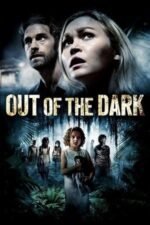Beyond the Jungle: Exploring South America Through Cinema
There's something inherently captivating about South America in film – it’s more than just a backdrop; it’s a character, a force, a source of both immense beauty and profound danger. We often see it portrayed through a specific lens - adventure, thriller, even exploitation – but when you really dig into the cinematic landscape of the continent (and films about it), you find a richness and complexity that's truly rewarding.
Think about how frequently South America appears as this untamed wilderness. "Galyon," for example, leans heavily into that trope: a rugged mercenary battling terrorists in the Amazon. It’s classic action fare, sure, but even within that genre, it taps into a long-standing fascination with the continent's perceived wildness and the challenges of conquering it. "River of Death" doubles down on this, adding a layer of pulp adventure with Nazis and lost cities – a particularly potent combination reflecting anxieties about colonialism and hidden dangers. It’s almost a direct descendant of those early jungle expeditions that fueled so much Western imagination!
But South America isn't just about peril. "Saludos Amigos," Disney’s charming blend of live-action and animation, offers a wonderfully optimistic counterpoint. It’s pure escapism, yes, but it also showcases the vibrancy and cultural richness of the region through music and dance – a far cry from the often-grim portrayals we see elsewhere. It's interesting to consider how even in a family film, there's an element of "introducing" audiences to this 'other' world.
Then you have films like “What the Waters Left Behind: Scars,” which use South American landscapes – specifically the eerie abandoned town of Epecuén – to explore more existential themes. The band’s struggle for survival isn’t just about physical danger; it’s a metaphor for resilience in the face of loss and societal collapse. And that brings us to "Surviving Progress," a documentary that uses South America as a case study, examining how seemingly beneficial advancements can lead to devastating consequences – a sobering look at our relationship with progress itself.
Perhaps most powerfully, films like “The Battle of Chile” offer a vital historical record. It’s not about adventure or escapism; it's about bearing witness to political upheaval and the human cost of ideological conflict. It reminds us that South America isn't just a place on a map; it's a region with a complex history, shaped by colonialism, revolution, and resilience.
Ultimately, exploring South America through film is an invitation to look beyond the familiar narratives – the jungle adventures and exotic landscapes – and engage with the continent’s multifaceted identity. It’s about understanding its struggles, celebrating its culture, and confronting uncomfortable truths about our own place in the world. And that, my friends, makes for truly compelling cinema.






































